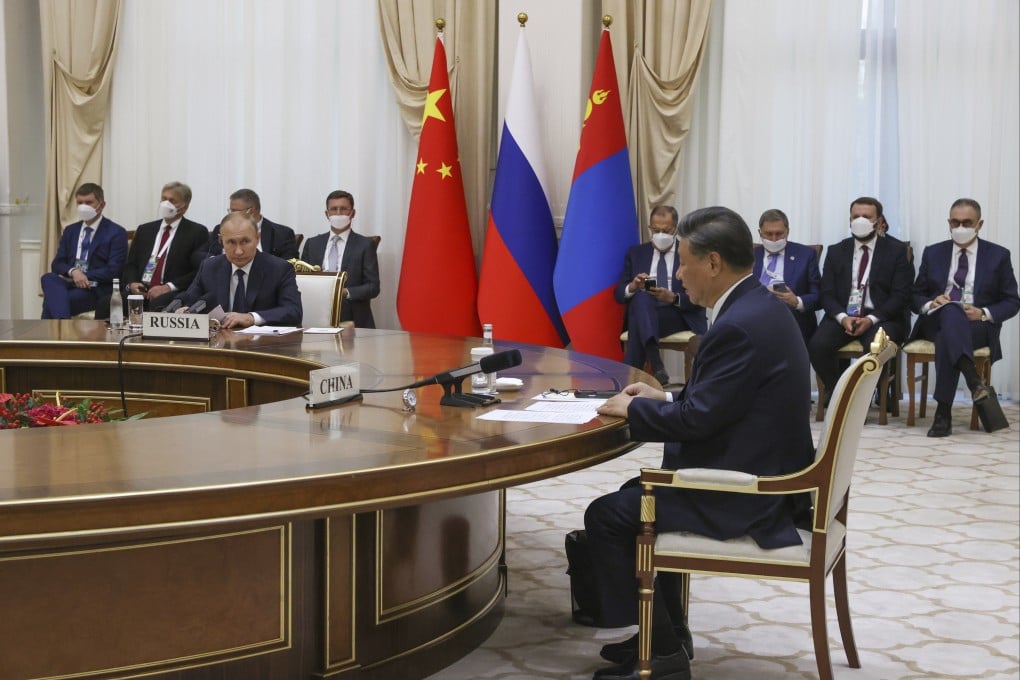Advertisement
‘Striking’ that Putin admits Xi’s concerns about Russia’s war in Ukraine: US State Department
- ‘Not surprising’ Beijing voicing reservations after months of ‘geopolitical gymnastics’ trying to avoid criticising Moscow, says spokesman
- While questioning Sino-Russian relationship, he notes US has ‘deepened partnership’ with Taipei as Taiwan Policy Act advances
Reading Time:3 minutes
Why you can trust SCMP
86

Russian President Vladimir Putin’s acknowledgement of Chinese counterpart Xi Jinping’s “concerns” about the war in Ukraine was “striking”, the US State Department said, reiterating American concerns about the two countries’ deepening relationship.
US State Department spokesman Ned Price made the comment hours after the Chinese and Russian leaders met in person for the first time since Russia invaded Ukraine in February.
“I suppose at this early hour [since the meeting], what is striking is President Putin’s apparent admission, at least as stated in the media, that President Xi has concerns about Russia’s war against Ukraine,” Price said at a briefing on Thursday.
Advertisement
During his meeting with Xi in Uzbekistan on Thursday, Putin said he understood China had “questions and concerns” about Moscow’s position, an indirect acknowledgement of Beijing’s potential disquiet. Russia has suffered a series of military setbacks in Ukraine in recent days, ceding territory it previously held.
“It’s not surprising that the PRC apparently has such concerns. It is somewhat curious that President Putin would be the one to admit it and to admit it so openly,” Price added, referring to China’s official name, the People’s Republic of China.
Advertisement
Advertisement
Select Voice
Select Speed
1.00x